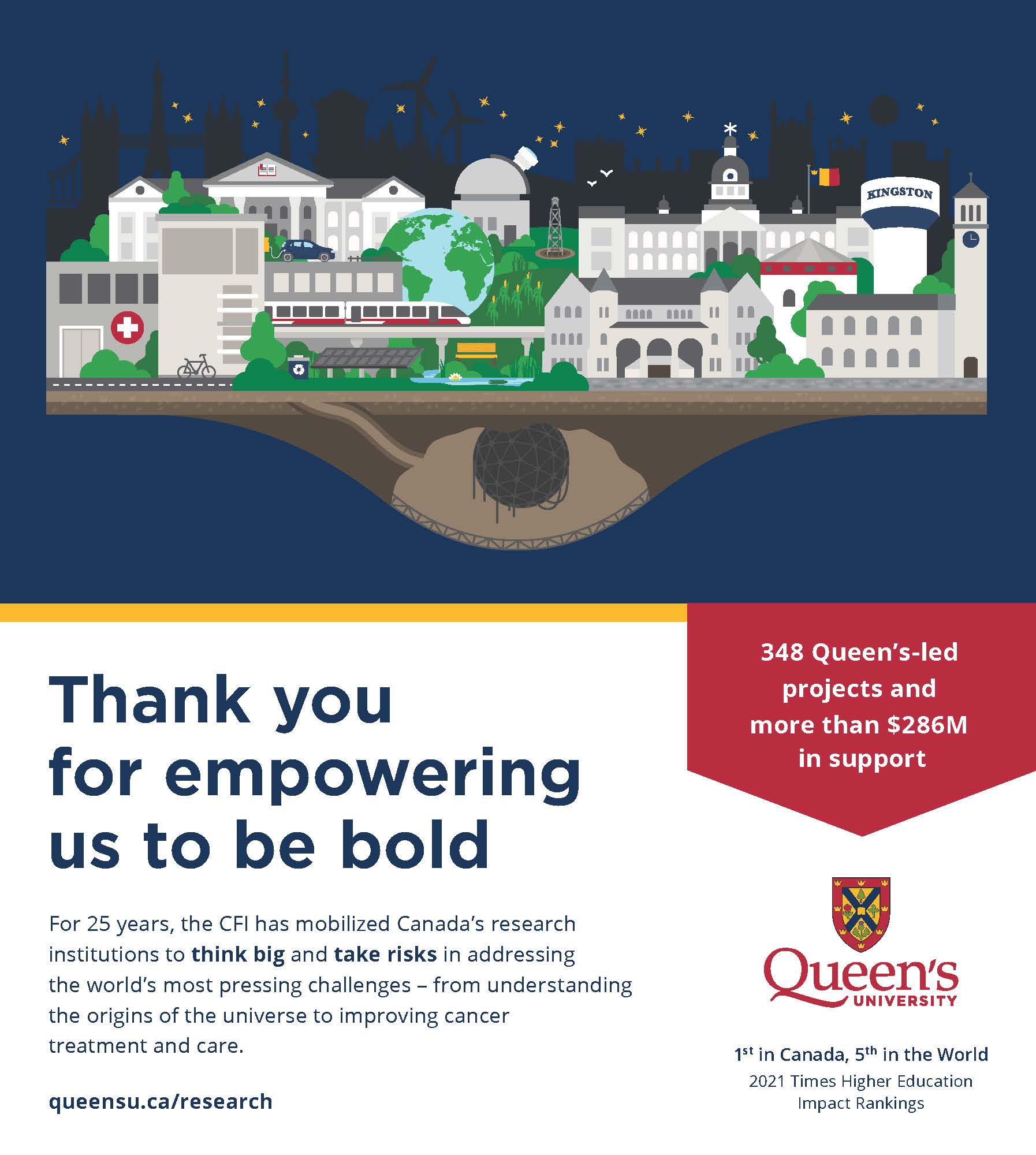Clinical trials at Queen’s University help determine life-changing diagnostics, treatments and prevention methods for cancer. In celebration of the 25th anniversary of the Canada Foundation for Innovation (CFI), we are profiling one of our CFI Major Science Initiatives, The Canadian Cancer Trials Group.
Cancer continues to be a leading cause of death in Canada and around the world. The Canadian Cancer Trials Group (CCTG), based at Queen's University, plays a critical role in the fight against cancer by designing and administering clinical trials in cancer therapy, supportive care, and prevention across Canada as a national program of the Canadian Cancer Society.
"Cancer touches everybody," says Dr. Janet Dancey, CCTG’s director. "Through clinical trials, we help reduce the burden of cancer by defining new standards of care, diagnostic tests and roles of therapies for different cancers." Since its establishment in 1980, CCTG has supported more than 600 phase I-III trials enrolling approximately 100,000 patients from 40 countries on six continents. At any given time, CCTG has 60 to 70 active clinical trials.
"Originally published in the Excellence in Research and Innovation special feature in The Globe and Mail on November 19, 2021."
Sinclair Cancer Research Institute
The Sinclair Cancer Research Institute (SCRI) is driving global efforts to combat cancer through cutting-edge research, innovative facilities, clinical trials, and a program to train the next generation of cancer researchers.
Discovery: They explore new drugs and therapies, using basic science and advanced imaging to understand the body’s response to treatments.
Trials: Potential treatments are rigorously tested to establish new standards of care for specific cancers.

![[Photo of CCTG building]](https://www.queensu.ca/research/sites/default/files/assets/featured_story/NCIC_6423%20.jpg)

![[Photo of Dr. Janet Dancey]](https://www.queensu.ca/research/sites/default/files/assets/featured_story/JaneyDancey-11-Edit%20-%20Copy_0.jpg)